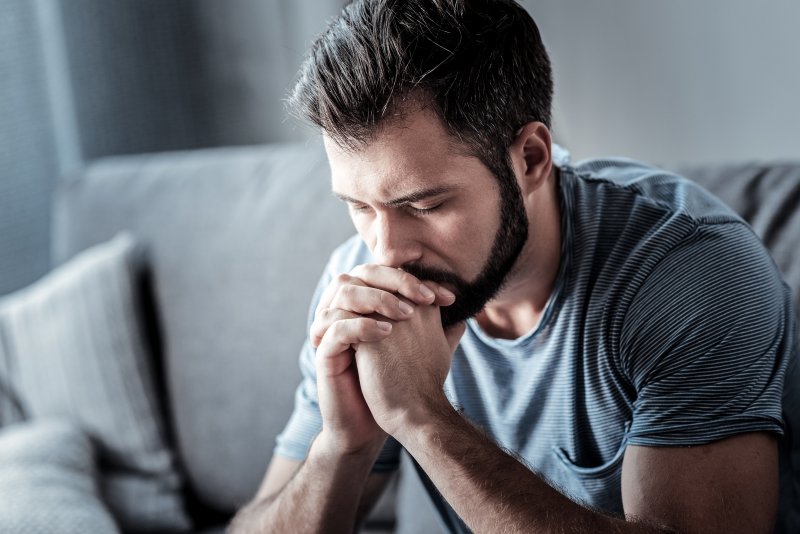
Sleep apnea is a prevalent issue among millions of people, and it can come with various complications to your overall health. Not only are you more likely to struggle with fatigue, headaches, and insomnia, but it has even been found to have a connection to depression. Keep reading to learn how sleep apnea relates to this condition and what you can do about it.
The Correlation Between Sleep Apnea & Depression
Your mood is one of the many things that your level of sleep can impact. For this reason, sleep apnea, which typically interrupts your ability to rest well, can increase the risk of experiencing depression. Some people might notice symptoms from both issues simultaneously whereas others might experience signs of sleep deprivation before the latter. Research has found that insomnia is closely related to depressive moods, but restlessness due to sleep maintenance has a much stronger connection to anxiety and lower moods. A recent study also showed that nearly half of people with obstructive sleep apnea (OSA) struggled with depression.
How Do the Symptoms of These Conditions Compare?
Since the symptoms of sleep apnea and depression are so closely intertwined, it can be challenging to understand exactly what your situation is. This is especially difficult because the latter is sometimes an indication of the former. Even so, some of the most common indications of the sleep apnea include:
- Loud and frequent snoring
- Waking up with shortness of breath
- Breathing interruptions during rest
- Excessive tiredness
- Trouble maintaining concentration
- Irritability
- Dry mouth
- Sore throat
Some of the symptoms related to depression include:
- Feelings of sorrow, hopelessness, and/or emptiness
- Sleep disturbances, like insomnia
- Headaches
- Fatigue
- Frustration and irritability
- Trouble concentrating or thinking
- Changes in appetite
Home Remedies That Can Help
To help address sleep apnea, you’ll want to consider implementing the following tips:
- Exercise frequently: Not only can you lose weight, but you can also improve your sleep apnea symptoms.
- Avoid alcoholic beverages: Drinking too much and too often can raise complications with sleep apnea and depression.
- Stop taking sleeping pills: These medications can end up exacerbating sleep apnea and worsen depressive moods.
- Refrain from back sleeping: Resting on your back can potentially cause your tongue to block your airway. To avoid this, try sleeping on your stomach or side.
If you suspect that you have sleep apnea, make sure to consult your dentist or primary care physician so that they can refer you to a sleep doctor for testing. By seeking the help you need, you’ll be one step closer to getting the sleep you need while working toward emotional balance!
About the Author
Dr. Jeff Rodgers has over two decades of experience as a dental sleep expert and is dedicated to educating his community and beyond about sleep issues and effective treatment. As a graduate of the University of Alabama School of Dentistry, he earned his position as a Diplomate of both the American Board of Dental Sleep Medicine and the American Sleep and Breathing Academy, and he offers custom oral appliance therapy to help patients get much better rest. If you wish to learn more about sleep apnea or want to schedule a visit, check out our website or call us at 404-252-1221.
